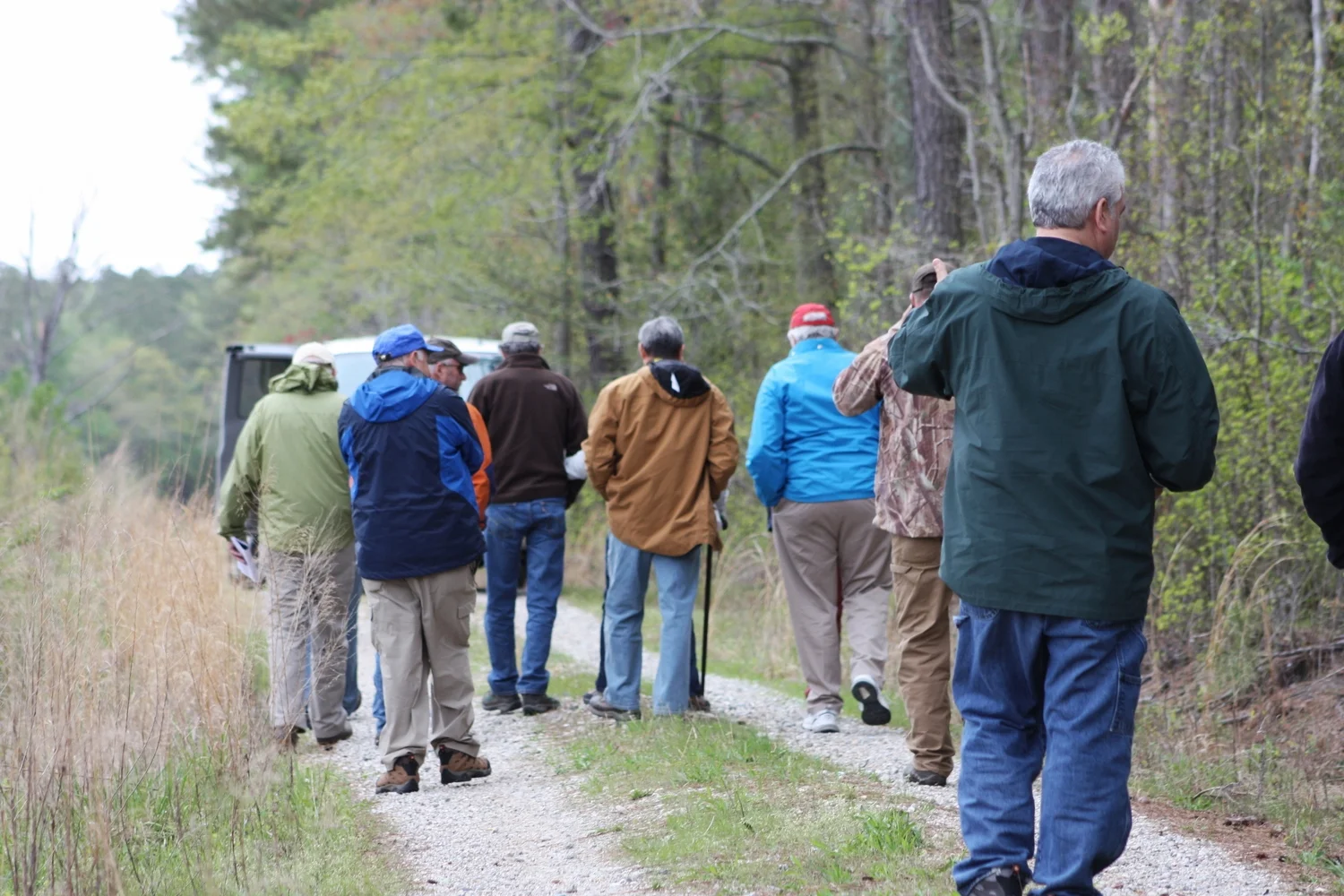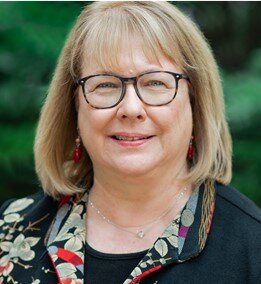Current Panel Members
Ann Bartuska, Senior Advisor, Resources for the Future, Washington, DC
Ann M. Bartuska is a senior advisor at RFF. In this capacity, Dr. Bartuska is focusing her efforts on natural resources and forestry, especially consideration of natural climate solutions through forests and agricultural lands. She also will be doing outreach in support of the valuation of information (VALUABLES) obtained through satellite imagery. Dr. Bartuska joined RFF in 2017 after serving as the US Department of Agriculture’s (USDA’s) Deputy Under Secretary for Research, Education, and Economics as well as chief scientist. Prior to USDA, Dr. Bartuska held a host of leadership positions, including Deputy Chief for Research and Development of the US Forest Service. She currently is a member of the National Academy of Sciences’ Standing Committee on Science Communication and a member of the Board on Environmental Science and Toxicology. She was elected President of the Ecological Society of America for 2003 and was recently named an AAAS Fellow.
Education
PhD in biogeochemistry and ecosystem ecology, West Virginia University, 1981
MS in botany and ecology, Ohio University, 1977
BS in biology, Wilkes College, 1975
Nick Biemiller, Director Southeast Forest Restoration American Forests, Asheville, NC
Nick is interested in better integrating forest management and conservation impact by elevating the standard of forestry, improving forestry supply chains and operations, unlocking payments for ecosystem services, demonstrating best practices, engaging diverse partners in meaningful dialogue, and leading by example via boots-on-the-ground action. With the Ruffed Grouse Society & American Woodcock Society, Nick is helping implement their Model of Working Forests in the Southern Appalachians. He is focused on promoting wildlife forestry approaches to increase habitat for ruffed grouse and woodcock, which are severely at risk in the Southern Appalachians, but also promoting healthy and resilient forests that support a diversity of wildlife and are adapted to a changing climate.
In his most recent role prior to joining the Ruffed Grouse Society & American Woodcock Society , Nick served as Southeast Region Director for the Forest Stewards Guild for three years, where he promoted forest stewardship across the southeast, including several projects with a wildlife forestry focus. Nick earned his bachelor’s degree from Warren Wilson College and a Master of Forestry degree from the Yale School of Forestry and Environmental Studies. Nick has been immersed in working forests and the diverse goods and services that they provide, including clean air and water, recreation, wildlife habitat, and forest products.
Brian Brashaw, Assistant Director for Wood Innovations, USDA Forest Service, Washington DC
Brian Brashaw is the Assistant Director for the USDA Forest Service, State & Private Forestry, Wood Innovations Program. The Wood Innovations Program supports the development of wood products and wood energy markets to reduce wildfire risk and enhance long-term, sustainable management of National Forests and other forest lands. Wood Innovations has focused on mass timber, innovative wood products and renewable wood energy through grants to support education and building project assistance, special communication initiatives, and technical assistance. For over 30 years, Brian has focused on supporting the connection between forestry and forest products, helping support and advance wood products through research, market development and outreach. Brian earned a BS degree in Forestry from the University of Wisconsin–Stevens Point, a MS degree in Wood Materials Engineering from Washington State University, and a PhD in Forest Resources from Mississippi State University.
Kate Edwards, Research Program Manager, Natural Resources Canada, Ottawa, Ontario Canada
Kate is a Senior Science Policy Advisor at the Canadian Forest Service of Natural Resources Canada (NRCan-CFS; Government of Canada). She works primarily on policy initiatives related to the conduct of science in NRCan-CFS and in support of various Forest Science Partnerships and engagement activities. Kate recently completed an assignment with the Forest Products Association of Canada where she provided support on climate change, Indigenous partnerships, forest conservation, science communications, and the future of Canadian forest management. She has also worked extensively on the impacts of climate change on Canada’s forests and the development of science-based climate change adaptation strategies for the forest sector and forest communities. Kate was previously a Research Scientist with NRCan-CFS and led field-based research in the Atlantic province of Newfoundland and Labrador. Her research investigated the impacts of climate change on Eastern Boreal forests, with a focus on soil and water processes, including carbon and nutrient cycling. She has also worked in forests of the Pacific Northwest, the Northern Boreal, and the Tropics, and she completed her Ph.D. dissertation in the tree-less Arctic tundra.
Alison Gamble, Environmental Scientist Shared Value Solutions, LTD, Thunder Bay, Ontario Canada
Alison is an environmental scientist at Shared Value Solutions Ltd., a private consulting firm that works with Indigenous communities across Canada to help them understand potential impacts to their rights and interests, so that they can make informed decisions about what happens on their Lands and Waters. She is a registered Chartered Chemist in Ontario and is a member of the Society of Environmental Toxicology and Chemistry, where she sits on an international steering committee for the integration of Indigenous Knowledge and Values with western science. Alison is experienced in designing, leading, and reporting on environmental monitoring programs, and has a strong background in planning and facilitating community meetings and engagement sessions. She frequently conducts third party reviews of technical reports and documents to identify technical and scientific concerns, as well as how resource management activities may impact Indigenous rights, interests, and claims. Alison holds a master’s degree in environmental sciences and a bachelor’s degree in chemistry, both from the University of Guelph.
Nancy Gelinas, Dean of the Faculté de Foresterie, Géographie et Géomatique Université Laval, Quebec City, Quebec Canada
Dean of the Faculté de Foresterie, Géographie et Géomatique since 2020, Nancy Gélinas is also a full professor in the Department of Wood and Forest Sciences. She holds a doctorate in forest sciences from Université Laval, with a specialization in forest economics. Her research focuses on a variety of social and economic aspects including the economic valuation of environmental services, timber industries, integrated resource management, the participation of forest communities in resource management and agroforestry, always in a socio-economic perspective. Her work and research interests are deployed at different scales, from local to international.
Sharon Jean-Philippe (Vice-Chair), Professor of Urban Forestry, The University of Tennessee, Knoxville, Tennessee
Sharon Jean-Philippe is Professor of Urban Forestry and the Urban Forestry State Extension Specialist at the University of Tennessee. She is the faculty advisor for all students majoring in forestry in the urban forestry concentration and is the primary director of summer internship opportunities for students across multiple disciplines. She teaches courses in forestry that address vegetation establishment, management, and removal across an urban - rural gradient, legal issues, vegetation utility management, and the effects of societal influences on green infrastructure. Her Extension appointment affords her the opportunity to work with Extension agents and specialists, as well as directly with Tennesseans, to help them with their urban forest needs. In addition, she develops Extension outreach opportunities that educate and highlight climatology, enhance human benefits of urban forests, and increase economic value of green infrastructure to cities. Dr. Jean-Philippe was appointed to the Tennessee Forestry Commission as the Representative of the Public-at-Large (2020 – 2024) and is the faculty director for Tennessee Champion Tree Program and the Community Riparian Restoration Program.
Sharon is a member of Society of American Foresters, a member of International Society of Arboriculture (ISA) where she is on the Board of Directors for ISA and serves as Board Treasurer, Board of Trustees member for the TREE Fund (2017 – 2024) and President Elect for the Gamma Beta Phi Society (2022 – 2024). She obtained her bachelor’s degree in Biology from Tennessee State University, master’s degree in Botany and Ph.D. in Natural Resources from University of Tennessee.
Scott Phillips (Chair), State Forester
SC Forestry Commission, Columbia, South Carolina
Scott Phillips is the State Forester of South Carolina. As the agency head for the South Carolina Forestry Commission, he provides oversight of all functions of the agency and works with a nine-member board appointed by the governor to set agency policy and direction. He represents the Forestry Commission and forestry interests at the state government level as well as regionally and nationally.
A native of Millen, Georgia, Phillips started with the agency in 1999 as a Forester on Manchester State Forest. Scott received a B.S. of Forest Resources from the University of Georgia where he dual majored in Forestry and Wildlife Management and a Master of Forest Resources from Clemson University where he specialized in Forest Business. Scott is a Registered Forester in South Carolina, a member of the Society of American Foresters and the Forestry Association of South Carolina. He is also a Tree Farm Inspector and has served on the SC Tree Farm Committee’s Board of Directors since 2008 in the roles of Secretary/Treasurer, Vice Chairman and Chairman.
Dominik Roeser, Associate Professor, University of British Columbia, Vancouver, British Columbia Canada
Dr Dominik Roeser is an Associate Professor in Forest Operations at the University of British Columbia in Vancouver where he is supporting the next generation of foresters as Program Director for Forest Resources Management and Forest Operations. He is leading a multidisciplinary research lab at UBC focusing on supply chain design, forest technology implementation, stakeholder engagement and biomass procurement. Prior to UBC, Dr. Roeser was working at FPInnovations where he, as Senior Director, managed a multidisciplinary team focused on improving the competitiveness of the forest sector and developing practical solutions to improve efficiency in Western Canada. Dr. Roeser has an extensive background in building and leading strong national and international networks and projects focused on academic excellence, innovation delivery and implementation. He has more than 22 years of experience in forest research and innovation and has been working to innovate the forest sector and develop solutions that support sustainability and the emerging bioeconomy both in Europe and in Canada.
Rick Cantrell, (Executive Secretary), President
BlackBriar Environmental LLC, Clemson, SC
Rick established BlackBriar Environmental LLC, an international natural resources consulting firm in October of 2012. Clients include a number of different organizations including the National Association of State Foresters’ Forest Markets Committee. Prior to establishing BlackBriar, Rick worked for the Sustainable Forestry Initiative (SFI) Inc. program for 18 years in a variety of roles including participation in the development and implementation of strategic communications and marketing plans and programs. Prior to leaving SFI to establish BlackBriar, Rick served as Vice President & Chief Operating Officer for SFI and was responsible for general operations of the program and several key issue areas such the development, implementation and promotion of the SFI Standards.
Rick's other professional experience includes working as a forest research associate at Auburn University, an extension forester at the University of Tennessee, a wetlands biologist for the U.S. Army Corps of Engineers, and as a private forest management consultant.
Rick graduated with honors from North Carolina State University with a B.S. degree in forest management and from the University of Florida with a M.S. in forest science. Rick was the 1999 recipient of the Society of American Foresters' Young Forester Leadership Award and the 1990 recipient of the Kentucky-Tennessee Chapter of the Society American Foresters’ Outstanding Service in the Promotion of Forestry award.
In his role as Executive Secretary of the External Review Panel, he provides staff support to help facilitate the independent operation of the Panel.










